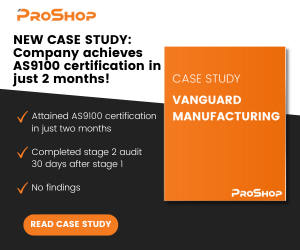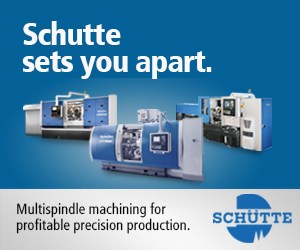Why Do Customers Buy From Us?
"Why do customers buy from us?" is one of those easy-to-overlook questions that can explain much about the state of our current business. With its easier-to-answer but trickier-to-solve cousin, "What do customers buy from us?" the question can illuminate your underlying business approach and explain why your sales are what they are.
"Why do customers buy from us?" is one of those easy-to-overlook questions that can explain much about the state of our current business. With its easier-to-answer but trickier-to-solve cousin, "What do customers buy from us?" the question can illuminate your underlying business approach and explain why your sales are what they are.
It isn't quality. When I was an up-and-coming quality control professional, I was convinced that people bought from our company because of our quality. But my opinion has since changed. Quality is expected. I am certain that each of us has been told by some customer, "If you are zero ppm, you're just an ordinary supplier."
The fallacy in achieving ISO and QS certifications is that they make you stand out. If an overseas supplier and you are both ISO 9000-registered, your quality is equal in the buyer's mind. The standardization of quality systems has worked to commoditize our expertise. It lowers—not raises—a bar to enter of our markets. It does not to help set us apart. Quality system conformance is now a minimum requirement to get to quote.
It isn't price. I know you have a drawer full of jobs that you lost on price. But customers do not decide to buy from us because of our price. They do decide not to buy because of price, but that is not the same thing.
Price is determined by the marketplace and the desperation of your competitors. The price in a market is never any stronger than what the will of the weakest competitor will allow. If you can honestly say that your customers buy from you on price, then I can show you buyers that are one price cut away from being former customers.
Is it service? You can bet your bottom dollar it's service. Think of how you make the decision on when to set up a machine to run a part. Do you decide based on your knowledge of the barstock quality? No. Do you decide because you got a great price on some barstock? I don't think so. You decide to set up your equipment based on your assurance of having the barstock available to run in time.
Supplier A might be cheaper, but if his delivery is 2 months out, that lower price is irrelevant. If suppliers B and C both offer material that meets the specification, how does that differentiate them? Delivery, therefore, is one indication that service is the crucial differentiator for a buyer's purchase decision. But service is more than just delivering a product on time. Customers expect that. So what else is service?
What do customers buy from us? Answering this question will help you understand the full value package that you provide. "What do we sell?" is the flip side of that question. The answer is not precision machined parts. Such parts can be obtained from many suppliers.
What you sell is the time on your machines, along with your expertise as it is applied to the application of that time. This is your Unique Selling Proposition. Customers can buy parts from many machining companies, but they can only get the results of your machines, processes and expertise from your company.
Your value package includes the tangible part, but it also includes value that you alone add by your specific process knowledge, availability, capabilities, understanding of dimensions and material and more.
How else do you add value that sets you apart from your competitors? Quote response time? Response time on rush jobs? JIT deliveries? Finding hard-to-get raw materials? Complex heat treating or plating? Small lot sizes? Large lot sizes? Upfront engineering assistance? Quality assurance planning, documentation and support?
Companies are going to make decisions to buy machined products for their needs. How well they see your total value determines their decisions. If your quality is zero ppm and you offer the market price, you are still an ordinary supplier in their minds. Their perception of your unique value package is what sways their decisions to buy high-quality, competitively priced machined parts from your company.
Why do customers buy from you? What do customers buy from you? These are key questions that can help you understand both your business and your future.
— Precision Machined Products Association
Read Next
A Tooling Workshop Worth a Visit
Marubeni Citizen-Cincom’s tooling and accessory workshop offers a chance to learn more about ancillary devices that can boost machining efficiency and capability.
Read MoreSeeing Automated Workpiece Measurement in Real Time
User-friendly inspection software for CNC machining centers was shown at IMTS 2024 monitoring measurements between and after machining while performing SPC based on recorded measurement values.
Read MoreDo You Have Single Points of Failure?
Plans need to be in place before a catastrophic event occurs.
Read More

















